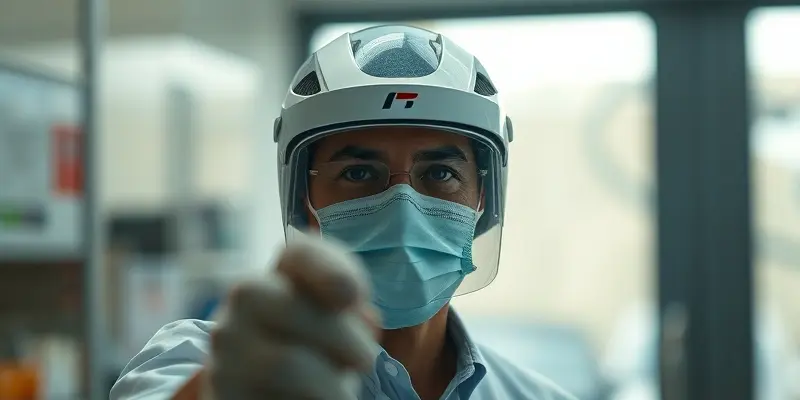Cognitive Recovery & Injury: How to Minimize Downtime and Return to Training Faster
By GymPulse Club Fitness & Health Experts
Injuries can sideline anyone, from weekend warriors to professional athletes. But did you know that your cognitive performance plays a big role in how you recover and how quickly you can return to your sport? Today, let’s explore practical, science-backed strategies to boost your brainpower during recovery—without getting lost in medical jargon.
Understanding the Cognitive Side of Recovery
Most people focus only on muscles and bones when injured. But your brain is in the driver’s seat. Reaction time, memory, and decision-making skills are vital—not just for performance, but also for preventing repeat injuries. If your mind isn’t sharp, even rehab exercises become risky.
Why Cognitive Recovery Matters
- Research shows cognitive function influences everything from balance to movement planning.
- After injuries—especially concussions—reaction time and focus can lag, raising your risk of re-injury.
- Fast, precise thinking is key to both a safer and quicker return to play.
The Science: How Exercise and Injury Affect Your Brain
- Exercise helps: Physical activity boosts mental clarity, memory, and speed—thanks to increased blood flow and brain chemicals.
- Head impacts hurt: Even light repetitive head impacts, like routine soccer headers, can dull reaction time and slow recovery in young athletes.
- Muscle injuries matter too: Studies reveal that when you’re mentally fatigued, your risk of muscular or ligament injuries, such as ACL tears, rises sharply.
Step-by-Step Guide to Smarter Recovery
1. Early Stage: Laying the Foundation
- Get clearance from your healthcare provider before any activity.
- Start with safe, low-intensity, and controlled movements.
- Use reaction-time or focus drills—like memory apps or light coordination games—alongside physical therapy.
Example: Pair ankle rehab with simple “Simon Says” exercises to gently challenge body and mind.
2. Building Momentum: Combining Body and Brain
- Integrate decision-making into movement. Try tossing a ball while balancing, or respond to quick verbal cues while stretching.
- Gradually increase activity complexity as both physical and cognitive function improves.
- Monitor for any signs of slowed thinking, confusion, or delayed reaction—especially after head injuries.
3. Nutrition for Brain and Body
- Prioritize omega-3 fats (fish, flaxseed), colorful fruits, protein, and B-vitamins.
- These nutrients help reduce inflammation, repair tissues, and sharpen your mind—even during downtime. For more on boosting recovery through vitamins, see our guide on B vitamins for energy.
Quick Tip:
Hydration is vital! Even mild dehydration slows reaction time and impairs memory.
4. Staying Motivated: Mindset and Mental Skills
- Use goal-setting, self-talk (“I’m strong and making progress”), and visualization practices.
- These mental strategies, often used by elite athletes, keep you focused, motivated, and positive through setbacks.
Case Example: NBA and NFL rehab programs now include regular sessions with sports psychologists for this reason. Explore more on the benefits of visualization for healing.
5. Tech & Tools for Next-Level Recovery
- Wearables and apps can track both physical and cognitive progress (reaction-time, memory games, balance assessments).
- Try reaction-time lights or neurofeedback devices in advanced rehab stages.
Common Injury Scenarios & Cognitive Connections
Concussions & Head Injuries
- Always follow a gradual protocol combining light activity and gentle cognitive tasks.
- Avoid returning if you show any concentration, memory, or reaction deficits.
ACL, Hamstring & Muscle Injuries
- Training under “cognitive load” (decisions to make, distracted environment) better prepares you for a safe return.
- Games that challenge your brain while moving are particularly helpful here.
Summary: Smarter Recovery for Stronger Returns
- Don’t neglect your brain during injury recovery—it’s as critical as rehabbing your body.
- Combining cognitive training, targeted nutrition, psychological tools, and tech can dramatically reduce downtime and cut your risk of future injury.
- No matter your sport or level, start small, monitor progress, and always prioritize safety.
Remember: Your brain is your most important muscle. Train it, and you’ll return not just faster—but better than before.
Feel free to share your recovery journey or ask questions in the comments—let’s keep each other motivated on the road back to peak performance!

